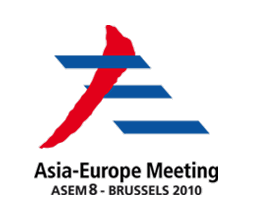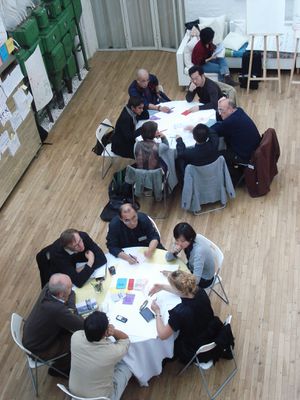posted on
27 Aug 2010
ASEM 8 Summit: Civil society recommendations for sustainable cities

As the Asia-Europe Meeting (ASEM) enters its 14th year, the global and regional environments face changing challenges that demand new ideas in governance, conflict resolution, education and the arts.
To take stock of and analyse the current trends and issues in Asia-Europe dialogue as well as forecast key areas for future co-operation, ASEF is organising the 4th Connecting Civil Societies of Asia and Europe Conference (2-3 October 2010, Brussels) as an official side-event of the ASEM8 Summit (4-5 October 2010, Brussels).
As the only permanent institution of ASEM, ASEF plays a vital role in connecting reflections of the ASEM level with the concerns of civil societies in both regions. The Connecting Civil Societies Conference will serve – as the name rightly suggests – to connect around 150 civil society experts from various fields including the arts and culture. Over two days, civil society participants from both regions will deliberate on common issues of concern and formulate relevant recommendations for ASEM partners in parallel thematic workshops at the Conference.
The central focus of the deliberations on the arts and culture at the Connecting Civil Societies Conference will rest on the need to build sustainable creative cities in Asia and Europe and the role of the arts therein, in an age of globalisation. These issues will be discussed by a group of invited artists and cultural practitioners at the Workshop, Sustainable Creative Cities: The role of the arts in the globalized urban context.
The idea for the Workshop, with its thrust on the place of the arts in the contemporary city, was proposed and developed by Institute of Cultural Theory, Research and the Arts (Institut für Kulturtheorie, Kulturforschung und Künste) at Leuphana University Lueneburg (Germany) and the Urban Research Plaza, Graduate School for Creative Cities at Osaka City University (Japan).
The workshop will address the roles of artists and creative workers in the evolution of globalized cities across Asia and Europe, assessing how an “artistic mode of knowing” can contribute to a transition from creative cities to sustainable creative cities. The aim is to facilitate the emergence of local urban processes of social change in partnerships between artists, cultural practitioners and communities, as opposed to top-down urban planning. Among the key questions that the participants will address are:
- Which changes in arts and cultural policies would support such an evolution of the roles of artists and cultural actors?
- Which insights from Asian experience can be transferred to Europe, and vice versa?
- How can cultural policies allow the emergence of cultures of complexity, rather than design cultural programmes?
- How to best disseminate good practices and sustain ‘communities of practice’ (i.e. informal networks held together by shared communities) across Asia and Europe?
By the end of two days, participating artists and cultural practitioners will have formulated relevant recommendations on the topic for ASEM policy makers. ASEF will present these recommendations at the ASEM8 Summit on 4-5 October 2010.
For more details on 4th Connecting Civil Societies of Asia and Europe Conference (2-3 October 2010, Brussels), please refer to:- ASEM 8 Summit and Conference: Connecting Civil Societies
For more information on the Workshop, Sustainable Creative Cities: The role of the arts in the globalized urban context at the 4th Connecting Civil Societies of Asia and Europe Conference, contact:
Ms. Katelijn VERSTRAETE, Assistant Director-Cultural Exchange at katelijn.verstraete@asef.org
Ms. Anupama SEKHAR, Project Executive- Cultural Exchange at anupama.sekhar@asef.org
For related articles on culture360.org please see: Interview: Sacha Kagan of the Institute of Cultural Theory, Research and the Arts
Similar content
posted on
11 Aug 2010
posted on
11 Aug 2010
posted on
27 Aug 2010
posted on
18 Nov 2010
posted on
29 Mar 2012
posted on
12 May 2010





